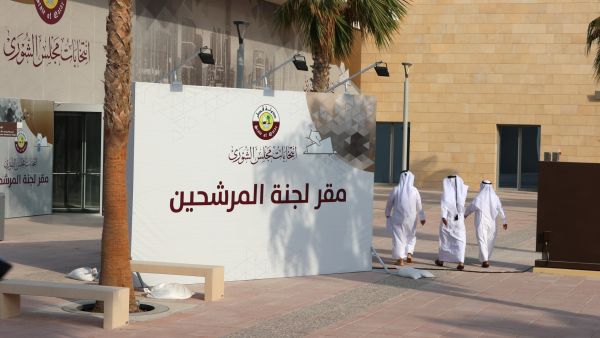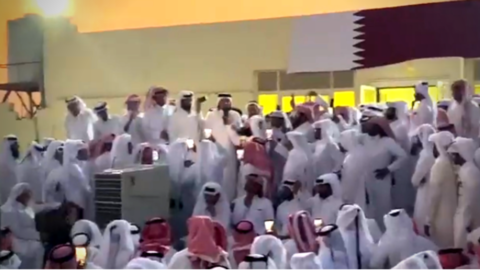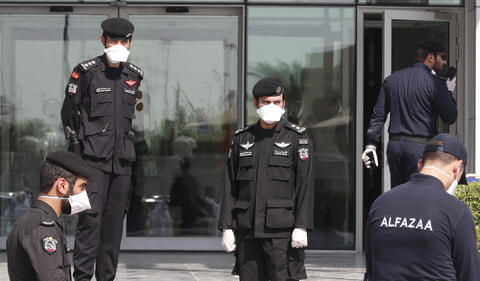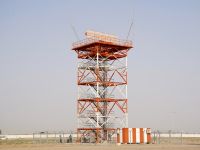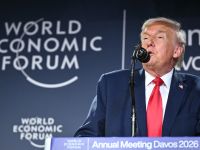A decree issued on Sunday by the Emir of Qatar, Sheikh Tamim bin Hamad Al Thani, set next October 2 as the date for holding the country’s very first legislative elections, ignoring the protests of the al-Murra tribe, whose members are prevented from standing in them.
According to the decree, thirty members of the forty-five members of the Shura Council will be elected, while the remaining fifteen will be appointed by the emir.
NEWS: Qatar's first legislative elections for two-thirds of the advisory Shura Council will take place on October 2.https://t.co/1fLUGvdQzp
— MENA Affairs (@menaaffairscom) August 22, 2021
Elections to the 45-seat shura council, originally proposed in the 2004 constitution, have been postponed repeatedly. Established in 1972, the council has until now been made up entirely of members directly named by the emir, Sheikh Tamim bin Hamad Al-Thani.
Only descendants of Qataris who were citizens in 1930 will be eligible to vote and stand, thus disqualifying all those naturalised since that year.
Members of the sizeable al-Murra tribe are among those who face being excluded from the hustings. Their exclusion sparked a fierce backlash.
The al-Murra tribe, which has considered the elections a provocative move, staged rare demonstrations in Doha and launched a social media campaign criticising the authorities.
The vote has sparked broad reactions in Qatari society beyond al-Murra’s protests. Some commentators considered the vote “a pure princely decision for which there was no real demand”. They were referring to the largely-shared view that the elections come with a heavy social cost without a tangible political outcome in return, especially considering the inability of the elected council “to hold the head of the executive authority,” the emir, “accountable”.
Qatari political commentator Abdulaziz bin Muhammad al-Khater was sharply critical of the elections in an opinion piece published by Al-Sharq newspaper. He described the electoral law as “poisoning the atmosphere of social harmony that Qatar has enjoyed for a long time.”
Commenting on the prevalence of tribal considerations over national imperatives, he added: “The tribal sun shone while the light of the homeland dimmed.”
Al-Khater supported the continued appointment of council members. He said that “choosing the right person is better than the victory of an unqualified candidate”.
Al-Khater has written a series of articles criticising the Qatari society’s lack of preparation for the elections. Nor is he the only dissenting voice in Qatar, as a number of influential political pundits has voiced similar views in the Qatari press.
Political commentator Muhammad Abdulaziz Al-Ansari wondered in an article published in Al-Sharq newspaper about the extent of the Qatari society’s readiness for the experiment. “Have we as citizens reached the stage of sufficient intellectual maturity that allows us to handle this interim phase?” he asked. “Are we really ready to engage in such an electoral battle with all responsibility and impartiality?”
Ansari pointed to the experience of the 1999 municipal elections, which became “the subject of jokes”. Ansari, a former dean of the College of Sharia and Law at Qatar University, who before the emergence of the election law and the al-Murra protests, deplored the lack of support base for democracy.
Ansari wrote in Qatar’s Al-Watan newspaper: “The Gulf state swallowed up its society, dominated its activities and marginalised the role of civil society organisations, with all intermediary civil groups becoming subordinate bodies that are ineffective in ensuring the political education of citizens.”
The Council will be a legislative authority with limited powers, as it will approve the state budget and will exercise control over government ministries but not over institutions that are under the direct authority of the emir. It will oversee matters of defence, security, economic and investment policy.
Members of the al-Murra tribe protested the provision blocking from electoral participation any Qataris whose families were not living in the small emirate before 1930. The tribe, from which several Qatari clans hail, has had a tense relationship with the ruling family in Qatar since the mid-nineties of the last century when prominent tribal members opposed the coup carried out by Sheikh Hamad bin Khalifa Al Thani against his father, Sheikh Khalifa, grandfather of the current emir, Sheikh Tamim.
In 2005, Qatar stripped some members of the tribe of citizenship on the grounds that they held two nationalities. It denied that the measure was in retaliation for their opposition to the coup.
#Qatar : October 2 set as date for first legislative elections - will elect 2/3 of advisory Shura council #قطر #شُورَىٰ pic.twitter.com/iNlnFqhUbH
— sebastian usher (@sebusher) August 22, 2021
The 2004 constitution, which provided for elections, was backed by Qatars in a referendum the previous year. The electoral law divides Qatari citizens into three categories; The first is that of the original Qatari citizens, who are entitled to candidacy and to vote. The second category is that of the naturalised Qataris whose grandfathers were born in Qatar and they only have the right to vote. The third category is that of naturalised citizens, who are not entitled to vote or to run for office.
Sheikh Tamim has in the past downplayed the importance of the elections in Qatar, saying “The elections are not the criterion for national identity. Qatar’s identity has crystallised over time and appears in its best form in the solidarity and cohesion of our society.”
This article has been adapted from its original source.


